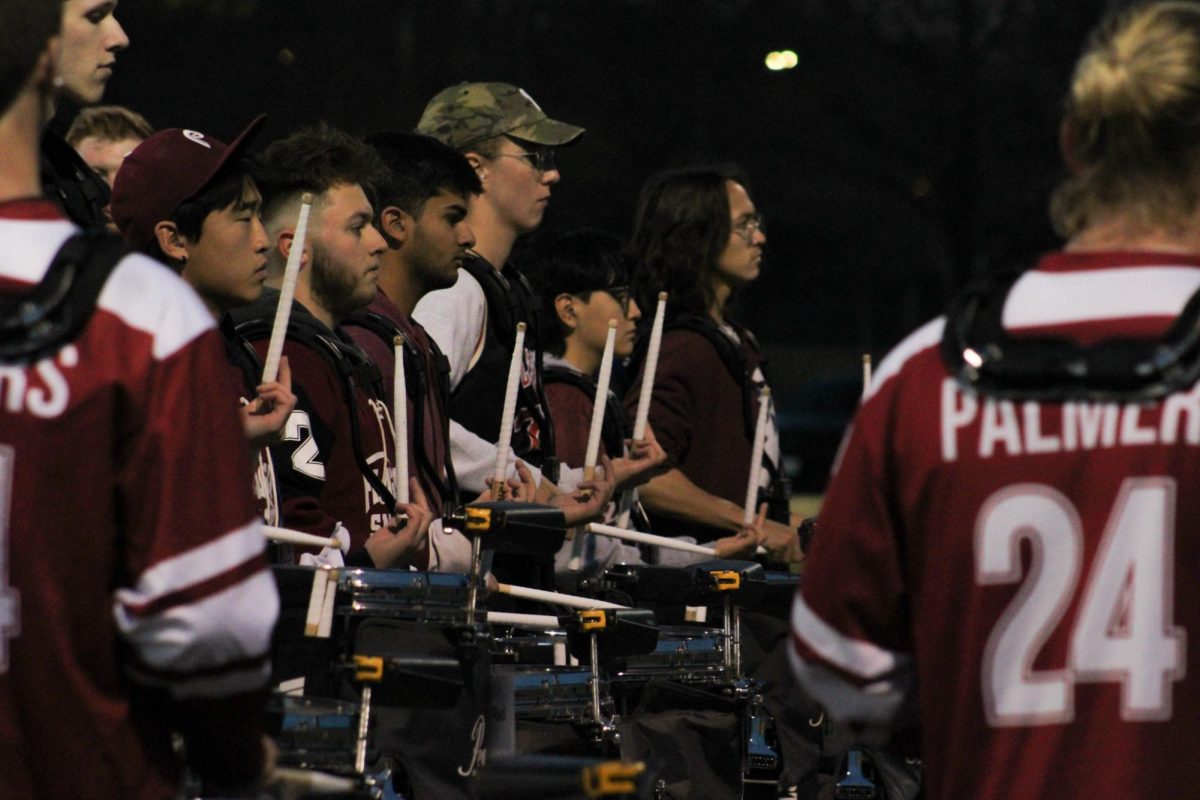Check out other reviews of Grammy nominated albums: Adele rolls into deep success with ‘21’ | Bruno Mars an unlikely contender in Grammys | Grammys for Gaga | Rihanna gets ‘Loud’ with nominations
If Pitchfork ever got anything right, it was the assertion that Dave Grohl is essentially this generation’s Tom Petty.

The Foo Fighters isn’t exactly rewriting the book and shattering the boundaries of popular rock ‘n’ roll, but then again that’s not really its game, either. Like Petty and his Heartbreakers, Grohl and his Fighters of Foo have the uncanny ability to pound away at basically the same formula time and time again and turn out a substantially solid rock record.
The seventh time is seemingly still the charm with the Album of the Year-nominated “Wasting Light,” Foo Fighters’ most recent effort released in April 2011.
Like most Foo-Fighting in the past, “Wasting Light” is the perfect example of the machinations of a daywalker rock band. Foo Fighters walked that razor-thin line between an aggressively quirky, outside the box approach and undeniable rock and roll immediacy.
Album opener “Bridge Burning” proves the Foos still have it right off the bat, with its grinding guitars and pounding drums giving way to a surging melodic chorus hook. Throwing a track that’s pretty much a crossover thrash tribute like “White Limo” in the same batch of 11 songs as a jaunty, major-key romp like “Back and Forth” is just par for the course for these guys, and continues to show their range.
As frontman and main songwriter, Grohl is at the center of this dichotomy. The cool thing about Grohl is that he’s a bottomless one-man hook factory, but when the chips are down and a track needs some extra muscle, his DC punk upbringing shows its stripes.
It’s one thing to dream up soaring and anthem-like choruses with hardcore influenced snarls and primal screams that make Judas Priest sound like children’s lullabies – it’s another thing to actually pull it off.
Grohl continues to shine as one of mainstream music’s most studious protégés of rock and roll, from the swagger of Zeppelin to the crustiest of punk.
One downfall of this album is its suffering from poor single syndrome. Something everybody hates to see is a good album that simply doesn’t put its best foot forward in the promotional singles department, and “Wasting Light” was represented on the radio by perhaps its weakest material. The single “Walk” sounds like a slightly meatier version of the lost ’90s one hit wonder “She’s So High” after a couple listens, and the mid-album “These Days” is probably the most forgettable track of the whole lot, even if it’s apparently Grohl’s favorite song he’s ever written – agree to disagree, Dave.
The exception is “Rope,” the album’s lead single that mysteriously got far less airplay than both “These Days” and “Walk,” the latter of which was somehow deemed an appropriate end credits song to a summer blockbuster comic book movie about the Norse god of thunder.
“Rope” is good example of one of those daywalker tunes: it pulls together an absolutely off-the-wall rhythm guitar pattern with schizophrenic vocals – bonus points for a tactful drum solo during the breakdown as well – and rounds it out with a signature sing-song Foo-style chorus. “Rope” is everything great about the Foo Fighters rolled into one, tightly knit four-and-a-half minute tune.
“Wasting Light” also marks a collaborative effort between Foo Fighters and producer Butch Vig, famous for presiding over the fabled Nirvana “Nevermind” sessions.
The entirety of “Wasting Light” was reportedly recorded in Grohl’s basement with all analog equipment and Vig at the production helm. As a result, “Wasting Light” has an endearingly raw touch – certainly not black metal raw, but Grohl and company have a point that forgoing ProTools and the intricacies of digital recording lends an intangible intimacy to this record. It’s not as slick as the previous “Echoes, Silence, Patience and Grace,” but it brings out the little nuances that set Foo Fighters apart from most other mainstream hard rock bands, such as the more subtle elements of drummer Taylor Hawkins’ contributions as well as the full spectrum of tonality covered by having three guitarists playing at the same time on most of the tracks.
That being said, there’s really no massive tracks – nothing that could singularly compare to classics like “Everlong” and “Best Of You,” stylistically speaking.
However, what it may lack in the hit-maker single department, it more than makes up for in what would otherwise be referred to as the “filler.” For example, right before the end of the album, “I Should Have Known” shows the Foos excelling outside of their comfort zone formula with a thoughtful arrangement and pacing, as well as a relatively grandiose accompaniment including strings and layered keyboards.
As an Easter egg for more dedicated listeners, famed Nirvana bassist Krist Novoselic plays bass and accordion on “I Should Have Known,” marking the first time that Grohl, Novoselic and Vig have recorded together since the smash grunge success of “Nevermind” in the early 1990s.
Dave Coffey can be reached at [email protected].












